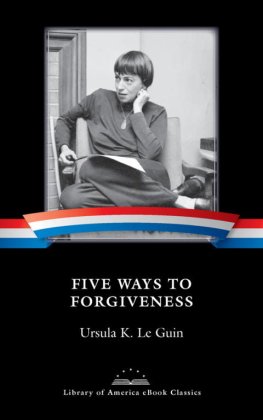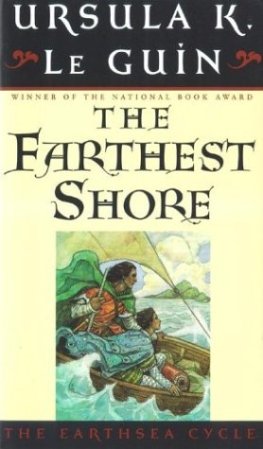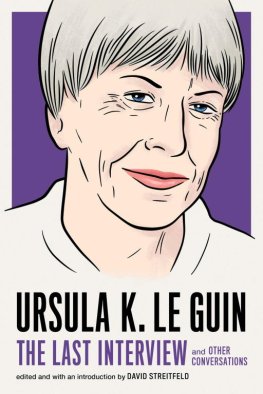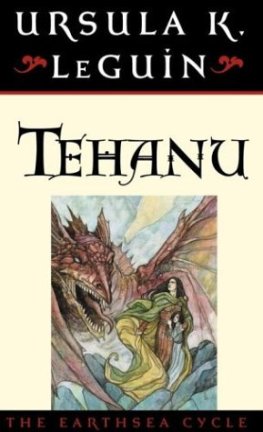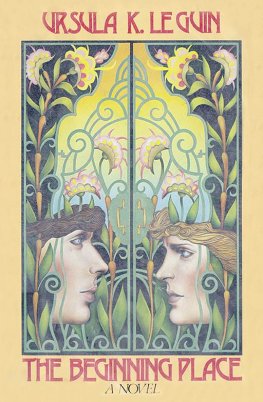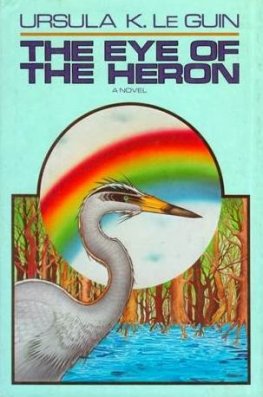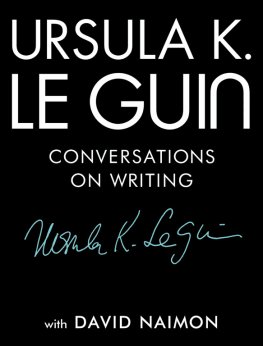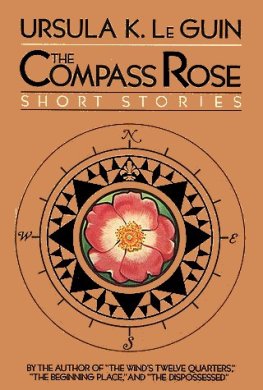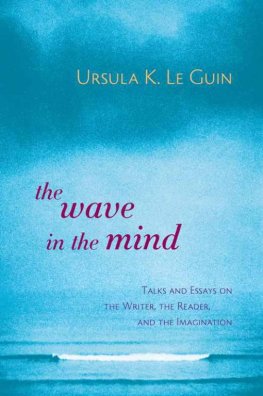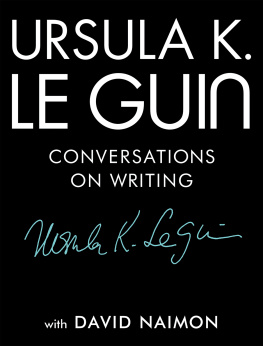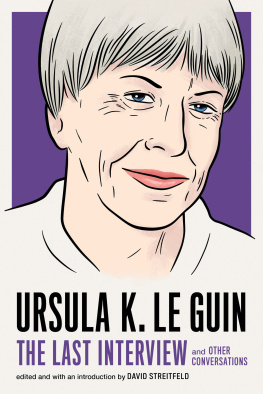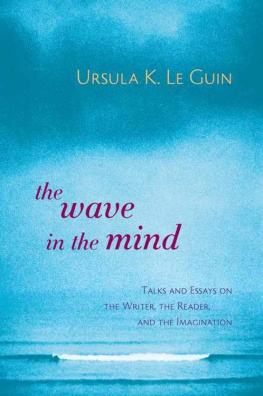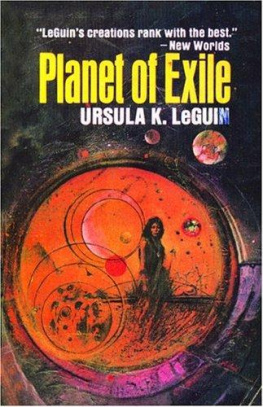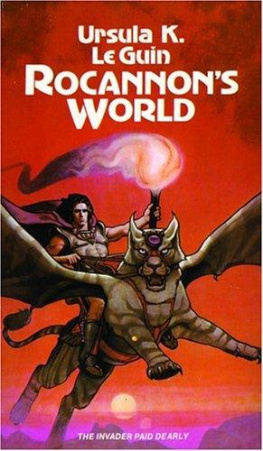Ursula K. Le Guin
FIVE WAYS TO FORGIVENESS
Brian Attebery, editor
ON THE planet O there has not been a war for five thousand years, she read, and on Gethen there has never been a war. She stopped reading, to rest her eyes and because she was trying to train herself to read slowly, not gobble words down in chunks the way Tikuli gulped his food. There has never been a war: in her mind the words stood clear and bright, surrounded by and sinking into an infinite, dark, soft incredulity. What would that world be, a world without war? It would be the real world. Peace was the true life, the life of working and learning and bringing up children to work and learn. War, which devoured work, learning, and children, was the denial of reality. But my people, she thought, know only how to deny. Born in the dark shadow of power misused, we set peace outside our world, a guiding and unattainable light. All we know to do is fight. Any peace one of us can make in our life is only a denial that the war is going on, a shadow of the shadow, a doubled unbelief.
So as the cloud-shadows swept over the marshes and the page of the book open on her lap, she sighed and closed her eyes, thinking, I am a liar. Then she opened her eyes and read more about the other worlds, the far realities.
Tikuli, sleeping curled up around his tail in the weak sunshine, sighed as if imitating her, and scratched a dreamflea. Gubu was out in the reeds, hunting; she could not see him, but now and then the plume of a reed quivered, and once a marsh hen flew up cackling in indignation.
Absorbed in a description of the peculiar social customs of the Ithsh, she did not see Wada till he was at the gate letting himself in. Oh, youre here already, she said, taken by surprise and feeling unready, incompetent, old, as she always felt with other people. Alone, she only felt old when she was overtired or ill. Maybe living alone was the right thing for her after all. Come on in, she said, getting up and dropping her book and picking it up and feeling her back hair where the knot was coming loose. Ill just get my bag and be off, then.
No hurry, the young man said in his soft voice. Eyid wont be here for a while yet.
Very kind of you to tell me I dont have to hurry to leave my own house, Yoss thought, but said nothing, obedient to the insufferable, adorable selfishness of the young. She went in and got her shopping bag, reknotted her hair, tied a scarf over it, and came out onto the little open porch. Wada had sat down in her chair; he jumped up when she came out. He was a shy boy, the gentler, she thought, of the two lovers. Have fun, she said with a smile, knowing she embarrassed him. Ill be back in a couple of hoursbefore sunset. She went down to her gate, let herself out, and set off the way Wada had come, along the path up to the winding wooden causeway across the marshes to the village.
She would not meet Eyid on the way. The girl would be coming from the north on one of the bog-paths, having left the village at a different time and in a different direction than Wada, so that nobody would notice that for a few hours every week or so the two young people were gone at the same time. They were madly in love, had been in love for three years, and would have lived in partnership long since if Wadas father and Eyids fathers brother hadnt quarreled over a piece of reallocated Corporation land and set up a feud between the families that had so far stopped short of bloodshed, but put a love match out of the question. The land was valuable; the families, though poor, each aspired to be leaders of the village. Nothing would heal the grudge. The whole village took sides in it. Eyid and Wada had nowhere to go, no skills to keep them alive in the cities, no tribal relations in another village who might take them in. Their passion was trapped in the hatred of the old. Yoss had come on them, a year ago now, in each others arms on the cold ground of an island in the marshesblundering onto them as once she had blundered onto a pair of fendeer fawns holding utterly still in the nest of grass where the doe had left them. This pair had been as frightened, as beautiful and vulnerable as the fawns, and they had begged her not to tell so humbly, what could she do? They were shivering with cold, Eyids bare legs were muddy, they clung to each other like children. Come to my house, she said sternly. For mercy sake! She stalked off. Timidly, they followed her. I will be back in an hour or so, she said when she had got them indoors, into her one room with the bed alcove right beside the chimney. Dont get things muddy!
That time she had roamed the paths keeping watch, in case anybody was out looking for them. Nowadays she mostly went into the village while the fawns were in her house having their sweet hour.
They were too ignorant to think of any way to thank her. Wada, a peat-cutter, might have supplied her fire without anyone being suspicious, but they never left so much as a flower, though they always made up the bed very neat and tight. Perhaps indeed they were not very grateful. Why should they be? She gave them only what was their due: a bed, an hour of pleasure, a moment of peace. It wasnt their fault, or her virtue, that nobody else would give it to them.
Her errand today took her in to Eyids uncles shop. He was the village sweets-seller. All the holy abstinence she had intended when she came here two years ago, the single bowl of unflavored grain, the draft of pure water, shed given that up in no time. She got diarrhea from a cereal diet, and the water of the marshes was undrinkable. She ate every fresh vegetable she could buy or grow, drank wine or bottled water or fruit juice from the city, and kept a large supply of sweetsdried fruits, raisins, sugar-brittle, even the cakes Eyids mother and aunts made, fat disks with a nutmeat squashed onto the top, dry, greasy, tasteless, but curiously satisfying. She bought a bagful of them and a brown wheel of sugar-brittle, and gossiped with the aunts, dark, darting-eyed little women who had been at old Uads wake last night and wanted to talk about it. Those peopleWadas family, indicated by a glance, a shrug, a sneerhad misbehaved as usual, got drunk, picked fights, boasted, got sick, and vomited all over the place, greedy upstart louts that they were. When she stopped by the newsstand to pick up a paper (another vow long since broken; she had been going to read only the Arkamye and learn it by heart), Wadas mother was there, and she heard how those peopleEyids familyhad boasted and picked fights and vomited all over the place at the wake last night. She did not merely hear; she asked for details, she drew the gossip out; she loved it.
What a fool, she thought, starting slowly home on the causeway path, what a fool I was to think I could ever drink water and be silent! Ill never, never be able to let anything go, anything at all. Ill never be free, never be worthy of freedom. Even old age cant make me let go. Even losing Safnan cant make me let go.
Before the Five Armies they stood. Holding up his sword, Enar said to Kamye: My hands hold your death, my Lord! Kamye answered: Brother, it is your death they hold.
She knew those lines, anyway. Everybody knew those lines. And so then Enar dropped his sword, because he was a hero and a holy man, the Lords younger brother. But I cant drop my death. Ill hold it to the end, Ill cherish it, hate it, eat it, drink it, listen to it, give it my bed, mourn it, everything but let it go.
She looked up out of her thoughts into the afternoon on the marshes: the sky a cloudless misty blue, reflected in one distant curving channel of water, and the sunlight golden over the dun levels of the reedbeds and among the stems of the reeds. The rare, soft west wind blew. A perfect day. The beauty of the world, the beauty of the world! A sword in my hand, turned against me. Why do you make beauty to kill us, my Lord?

